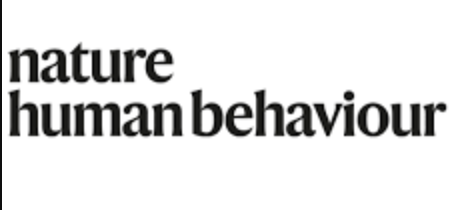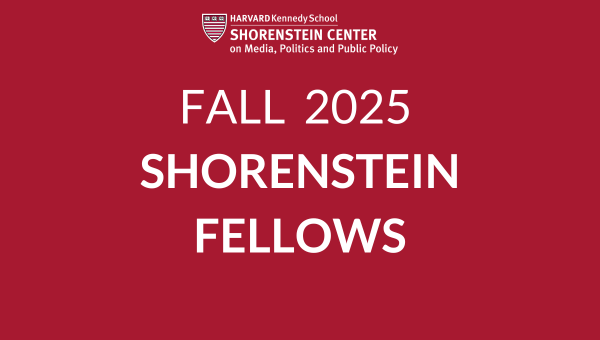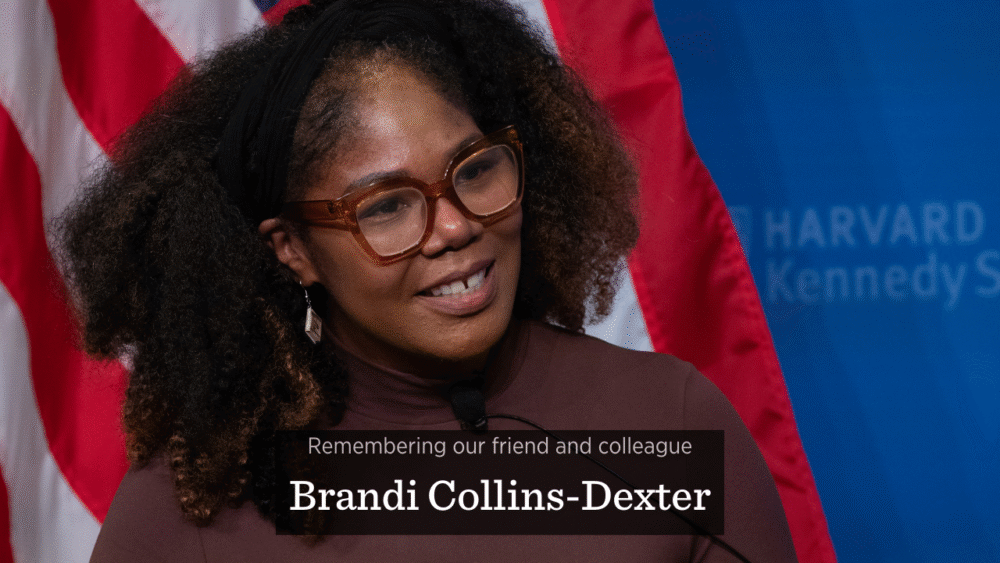
Center News
New study in Science Advances shows how simply written text reminders can help keep people out of jail
Center News

In a new paper published today in the journal Nature Human Behaviour, a global team of researchers argue that we are seeing the rise of an important new scholarly approach – affectivism – that will grant new insights into the foundations of human behavior.
The scholars, who come from disciplines ranging from computer science to philosophy, highlight how this approach can explain not only affective phenomena themselves (e.g., emotions, moods, or stress), but also why and how we think the way we think and do the things we do.
The team was led by Professor David Sander (Director of the Swiss Center for Affective Sciences, University of Geneva), and Dr. Daniel Dukes (University of Fribourg), and included Dr. Jennifer Lerner, the Harvard Kennedy School Thornton F. Bradshaw Professor of Public Policy, Decision Science, and Management, who is also a Shorenstein Center faculty affiliate. Professor Lerner observed that “this paper marks the rise of a new field, and an important moment in the history of ideas and the study of human behavior.”
Co-lead author David Sander explains: “Affective sciences is a growing field that I see as working “hand in hand” with the cognitive sciences, and I am impressed by the breadth and depth of the work done by many researchers in many disciplines to highlight the explanatory power of affective processes in models of mind, brain and behavior.”
“A selection of the co-authors actually specialize in interdisciplinary work and in areas that were previously the domain of people who considered themselves to be cognitivists or behaviorists”, added Daniel Dukes.
Professor Lerner’s research is an example of a key argument in the paper: that integrating affective processes in understanding how the mind works is undeniably useful, even for domains in which emotion was not considered an important factor before. In Professor Lerner’s case, understanding the role that affect and emotion have on human judgement and decision-making is key to making sense of why humans behave in certain ways in our modern world. For example, Professor Lerner’s landmark work discovered that whether major media outlets ran stories that incidentally triggered anger (versus fear) predicted whether citizens across the U.S. held relatively optimistic (versus pessimistic) views about the risks of terrorism in a post 9/11 world.
“We know that emotion-laden information spreads faster on the internet than purely cognitive information,” she explains. “We also know that emotion is a ‘fast’ system – emotional triggers travel faster in the human brain than cognitive ones. Understanding those two facts helps us better understand the spread of misinformation online, and can also help find ways to spread accurate information more effectively.”
Nancy Gibbs, Director of the Shorenstein Center on Media, Politics and Public Policy, notes that Professor Lerner’s research is part of a growing body of work that the Center is developing to give a fuller understanding of the complex issues at play in our current information ecosystem crisis. “The way people take in, process, and act on information that they encounter in their daily lives, online and off, has serious implications for everything from what sources they trust to what actions they take based on the information they see. Professor Jennifer Lerner’s research into how emotions affect decision making will help us better understand why some messages and messengers are so effective at spreading lies and misinformation. We look forward to expanding this work at the Shorenstein Center, and helping journalists and policy makers better understand the implications of this research.”
To read the full text of the new paper “The Rise of Affectivism” in Nature Human Behaviour, visit: https://shor.center/jO9YH1
To learn more about Professor Jennifer Lerner’s research on behavior and decision-making, visit: hks.harvard.edu/faculty/jennifer-lerner
The Shorenstein Center on Media, Politics and Public Policy is a research center at Harvard Kennedy School dedicated to building bridges between journalism and academia, and particularly focused on the twin crises of trust and truth in media and society, and their implications on the health of our information ecosystem.

Center News

Center News

Center News